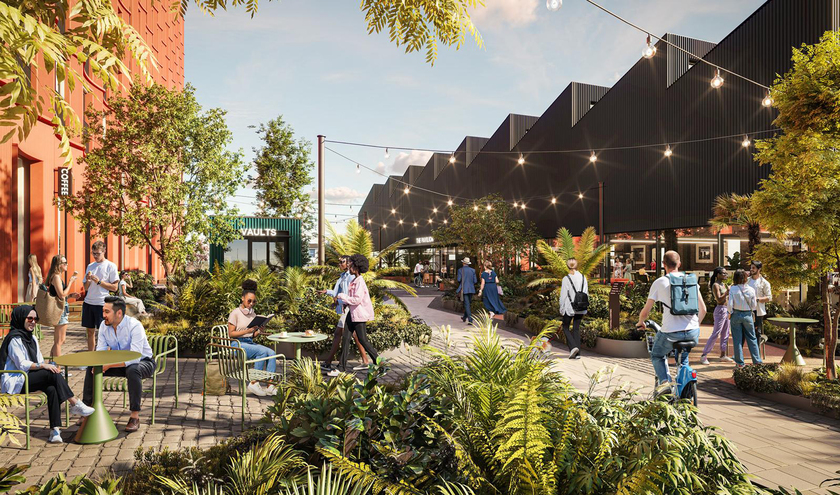The decline of town centres is an all-too familiar story. High streets that were once hubs of commerce and community, have in many cases become barren spaces marked by boarded up shop windows.
This change is profound, because town centres are not just physical spaces; they are places to belong. The building we live in may be our private home, but our town centre is the home we share with others.
And the struggles faced by our town centres demand action, because they reflect and reinforce the struggles faced by society. The empty shopfronts and desolate high-streets are more than just aesthetic problems, they are symptoms of deeper societal issues – financial hardship, social isolation and fragmentation.
To truly revitalise our towns, we must prioritise the needs of the people who live there. We must think both about how people serve their town centres, and how town centres serve their people. Here, local leaders can look to the research report published by Global Future Foundation, that sees ‘Earning and Belonging' as the key principles for the sustainable regeneration of town centres.
Let's take ‘Earning' first. If we want our town centres to thrive, we need local people to earn enough money to spend there. Most people want the option of buying goods and services locally, and in richer areas, high streets are bucking the trend of decline as a result. The problem is, for most of us, the hollowing-out of lower- and middle-income earners and the cost-of-living crisis means we simply don't have the cash needed to sustain local businesses.
The Mayor of Greater Manchester, Andy Burnham, understands this. To increase earnings, he has dared to introduce the Greater Manchester Baccalaureate – offering young people vocational training and links to major local employers. This gives young people the opportunity to move up in the world- without having to move-out. Driving regeneration by investing in people, rather than drawing in external capital, can grow prosperity without the exclusionary effects that so often come with gentrification.
The second lesson for regeneration is to focus on belonging. Local leaders need to remember that town-centres are much more than a selection of shops. While people nowadays might prefer to order things online from the comfort of their homes, there are certain services that can never be replaced by technology. Stockton on Tees is a fantastic example. At the centre of their regeneration, they replaced their huge declining shopping centre with a park three times the size of Trafalgar Square. As well as a space for lawns and wildflowers, there is a big emphasis on the social side of the park, with designated areas for picnics as well as playparks for children.
Moreover, while we can buy things online – anytime, anywhere, this sterile shopping experience can never replace the unique quirks of our towns. Indeed, where globalisation and technological advancements have eroded our sense of place, revitalising town centres offers an important tool to restore the identity and pride of a community. With this, local leaders should lean into their history, culture and character. For Barnsley, this called for reinvestment in the town's historic markets. For Portsmouth this meant architecturally tapping into the city's naval heritage. In an age where people are searching for a place-based sense of belonging, we should remember that the strength of town centres lies in the fact that no two are the same.
Finally, and most importantly, when we talk about reviving town centres we must make sure we are doing this with - rather than to - local people. When our towns fall into disrepair, many of us experience a personal sense of loss and disconnection, as well as a lack of agency. If we want to restore our town centres, local businesses, residents and third sector groups will need to be driving that.
A very simple but powerful way of building this ownership over place can be found in Ramsgate, where young children were called-in to design the beautiful ‘Kent Steps', where each one is uniquely designed by a different child using colourful mosaic tiles. It might be small, but designs like these are affordable, and they still make people stop to admire in what would otherwise be a transactional climb.
There's no silver bullet when it comes to reviving our town centres, but there are many examples where people have come together for success. So, let's not succumb to fatalistic stories of inevitable decline. If we focus on earning and belonging, we can, once again, see town centres thrive. Because whilst cycles of despair and degeneration can be self-fulfilling, so too can patterns of prosperity and regeneration.
Rowenna Davis is an associate partner and Sadie Levi is a researcher at the Global Future Foundation


